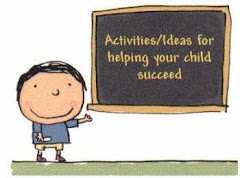 New York Times
New York TimesBy TRIP GABRIEL
EDUCATION May 02, 2010
In the world of education, it was the equivalent of the cool kids’ table in the cafeteria.
Executives from the Bill and Melinda Gates Foundation, McKinsey consultants and scholars from Stanford and Harvard mingled at an invitation-only meeting of the New Schools Venture Fund at a luxury hotel in Pasadena, Calif. Founded by investors who helped start Google and Amazon, this philanthropy seeks to raise the academic achievement of poor black and Hispanic students, largely through charter schools.
Many of those at the meeting last May had worried that the Obama administration would reflect the general hostility of teachers’ unions toward charters, publicly financed schools that are independently run and free to experiment in classrooms. But all doubts were dispelled when the image of Arne Duncan, the new education secretary, filled a large video screen from Washington. He pledged to combine “your ideas with our dollars” from the federal government. “What you have created,” he said, “is a real movement.”
That movement includes a crowded clique of alpha girls and boys, including New York hedge fund managers, a Hollywood agent or two and the singers John Legend and Sting, who performed at a fund-raiser for Harlem charter schools last Wednesday at Lincoln Center. Charters have also become a pet cause of what one education historian calls a billionaires’ club of philanthropists, including Mr. Gates, Eli Broad of Los Angeles and the Walton family of Wal-Mart.
But for all their support and cultural cachet, the majority of the 5,000 or so charter schools nationwide appear to be no better, and in many cases worse, than local public schools when measured by achievement on standardized tests, according to experts citing years of research. Last year one of the most comprehensive studies, by researchers from Stanford University, found that fewer than one-fifth of charter schools nationally offered a better education than comparable local schools, almost half offered an equivalent education and more than a third, 37 percent, were “significantly worse.”
Although “charter schools have become a rallying cry for education reformers,” the report, by the Center for Research on Education Outcomes, warned, “this study reveals in unmistakable terms that, in the aggregate, charter students are not faring as well” as students in traditional schools. The New York Times











No comments:
Post a Comment